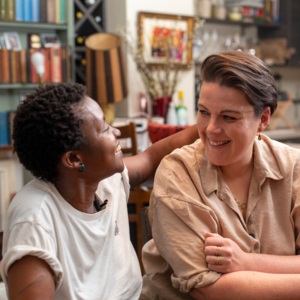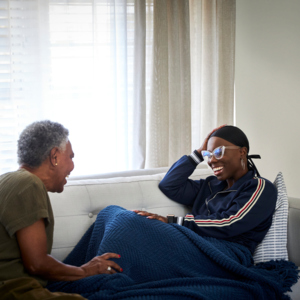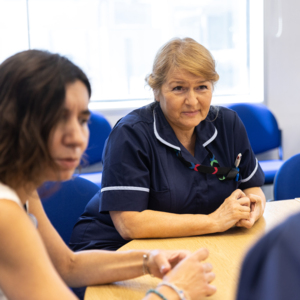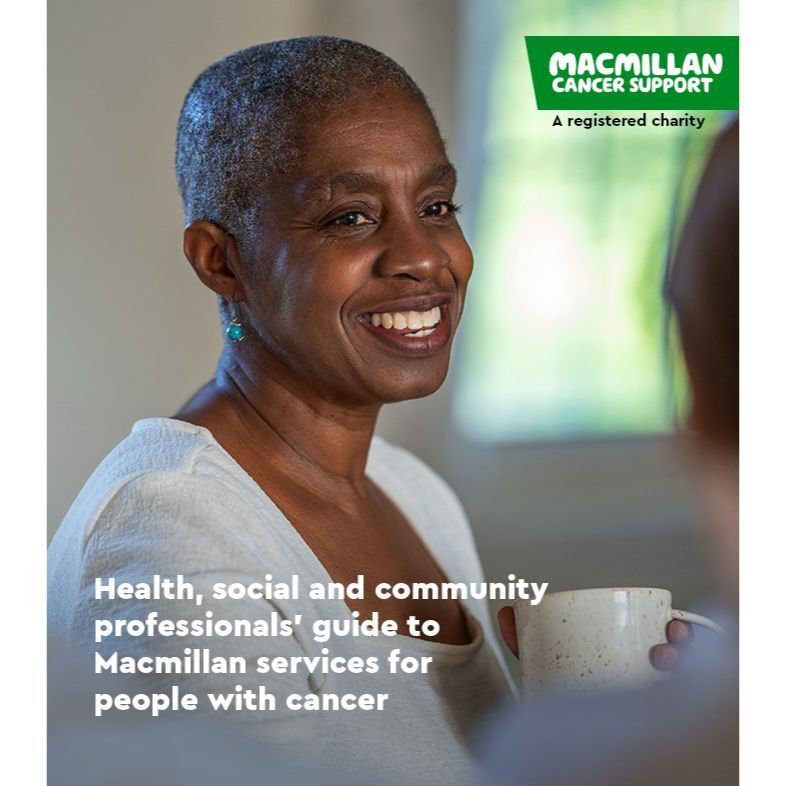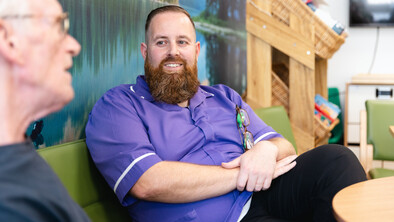
A greater society for all - why women's health matters
Dr Hannah Tharmalingam looks at why women’s health matters and what it means for cancer care.
"When we get it right for women, everyone in our society benefits." - Professor Dame Lesley Regan, Women's Health Ambassador in England
The gender gap in healthcare
Across the world, more than 800 women die every day from preventable causes linked to pregnancy and childbirth. Despite advances in medicine, healthcare systems continue to fail women in the UK and globally.
Women often live longer than men, but spend more of their lives in poor health. Many of their health needs, especially reproductive and gynaecological needs, remain under‑researched, under‑funded and, too often, dismissed.
Maternal mortality was named a UN Millennium Development Goal back in 2000 (2), still falls short of the original target of reduction by 75%.
Breaking taboos: overcoming stigma in women's healthcare
Even today, issues like periods, fertility struggles, menopause, sexual health and incontinence are treated as awkward, private topics. This stigma creates a culture of silence, stopping women from speaking openly and seeking help when they need it.
A Public Health England survey found that nearly a third of women experienced severe reproductive health symptoms over a year but fewer than half sought medical support. That’s a staggering number of women navigating pain, worry and disruption alone.
This lack of open conversation is reflected at a policy level too. For example, no new non‑hormonal treatments for heavy menstrual bleeding have been developed for 30 years. And treatments for severe pre‑menstrual syndrome remain outdated and invasive.
When women aren't listened to
A recurring theme across women’s healthcare is a failure to take women seriously. 84% of respondents to the Department of Health and Social Care’s (DHSC) said they didn't feel listened to.
Examples include those related to menstrual disorders with women told heavy, painful periods were normal or a minor issue they would simply grow out of, whilst others report waiting years for a diagnosis of endometriosis having repeatedly being dismissed by health care professionals.
Whilst it is indeed positive to see the Government’s Women’s Health Strategy commissioned and published, the views and expert testimonies expressed within it show concerning trends that need to be addressed.
The gender research gap
Research is fundamental to driving improvements in medicine, yet women are still not equally represented
Remarkably, the inclusion of women in clinical trials only really started in the late 1980s.. Over 30 years later, there remains a huge imbalance with, for example, according to one estimate, 80% of research evaluating pain being conducted in human men or animals, despite 70% of those afflicted by chronic pain conditions being women.
Furthermore, there is a disproportionate allocation of resources away from conditions affecting women with a 2014 report showing only 2.5% of publicly funded research in the UK was dedicated exclusively to reproductive health.
In comparison, according to one estimate from 2016 there is five times as much research into erectile dysfunction, a condition affecting around 1 in 5 men, compared to pre-menstrual syndrome which is thought to affect up to 90% of women at some point in their lives.
This imbalance builds a healthcare system that does not meet women’s needs. And it leaves trans men, non‑binary people assigned female at birth, and trans women facing even greater gaps in understanding and support.
What this means for cancer care
Cancer is one of the clearest areas where gender inequality shows its impact.
A Lancet Commission reported that 2.3 million women die prematurely from cancer each year, ranking it in the top three causes of premature mortality in women worldwide. Of these deaths, 1.5 million premature deaths could be prevented through prevention and early detection. The rest could potentially be avoided if all women could get better access to cancer treatment.
For women living with cancer, a number of issues relating to reproductive and sexual health can be disease or treatment related. Conditions such as menopause, infertility, sexual dysfunction, and incontinence have a considerable impact on their own but can often be even more devastating when intrinsically linked with a cancer diagnosis.
The importance of more menopause support has been explicitly mentioned in the England National Cancer Patient Experience survey with younger women often feeling unprepared and alone in navigating treatment-induced menopause and its considerable impact on their physical and mental wellbeing.
When looking at sexual health, men living with prostate cancer, for example, can often access support for treatment-related erectile dysfunction with a number of units running dedicated specialist clinics. Such similar support structures for women experiencing sexual health issues following pelvic radiotherapy are few and far between.
Seemingly, the taboos and stigma surrounding women’s gynaecological and sexual health have not escaped cancer care and our services are falling short. And, as with overall health, there are specific challenges when it comes to cancer care for people who are transgender or non-binary which we cover more in our supporting transgender patients blog.
How Macmillan can support everyone living with cancer
Health inequalities in accessing and receiving the right care and support are unacceptable. Macmillan provides a range of emotional, financial and physical support for everyone living with cancer.
The Macmillan Support Line is available with specialist advisers who may be able to assist and help navigate needs. Our tailored information resources are written by experts and cover a number of topics affecting women living with cancer. Further support is available through our Online Community and local support services.
At a national level, we continue to advocate for an inclusive, systems-level approach to addressing women’s health within cancer care so that everyone, no matter their gender, can live well with cancer. We also have information tailored specifically for people who are transgender or non-binary.
More blogs from our International Women's Day series
Stories And Media
-
Guides 28 Feb 2025Use this guide to quickly identify the services and channels that are best for the person you are helping.
-
Blogs 11 Mar 2025To celebrate National Cancer Clinical Nurse Specialist Day, Macmillan's Chief Nursing Officer Claire Taylor explores the impact the role has on cancer care and support.




